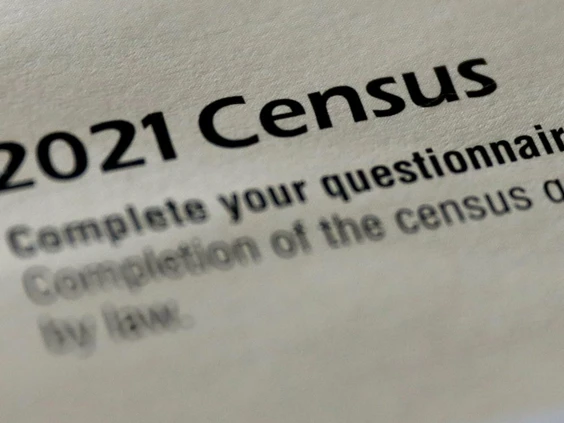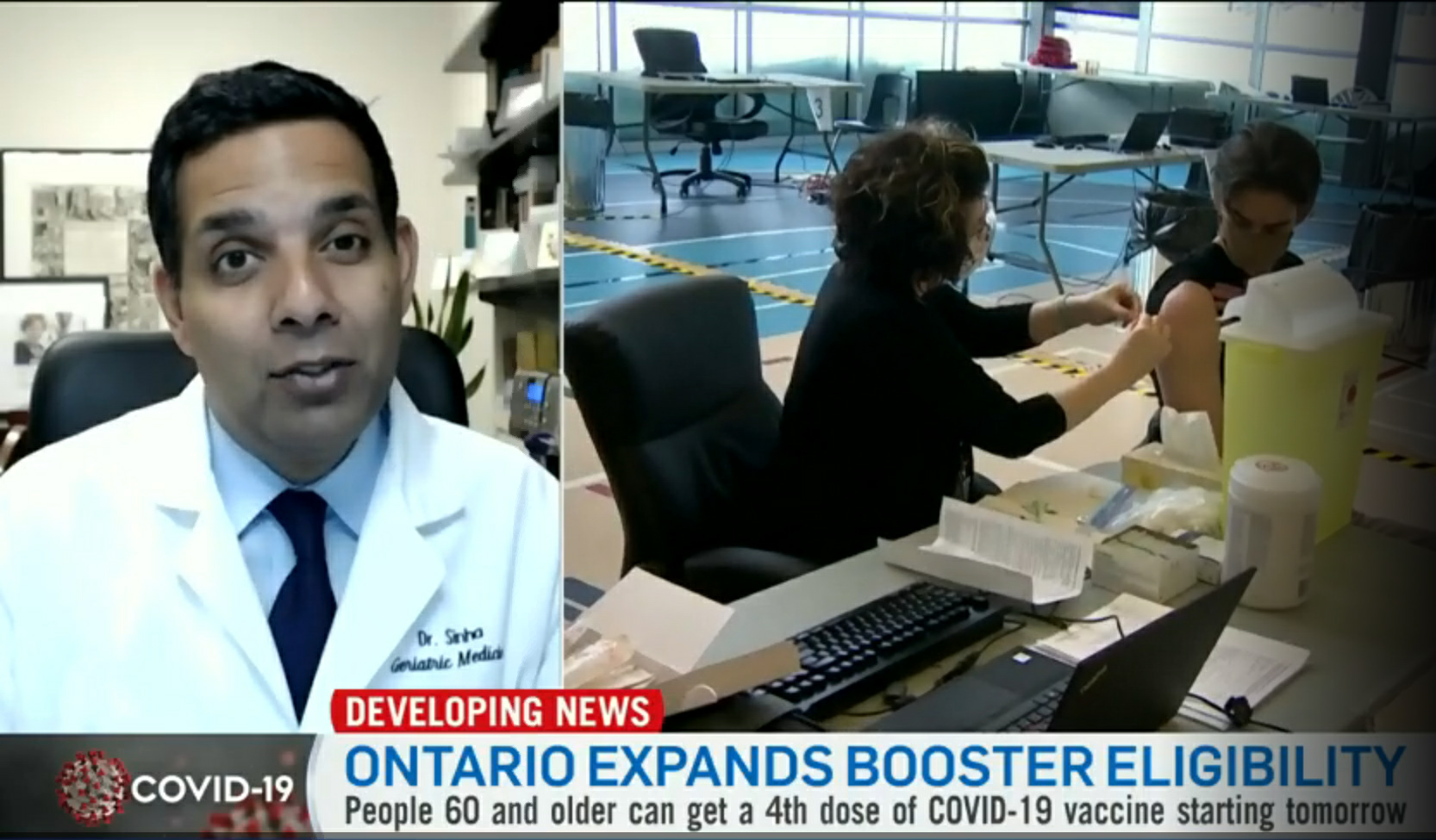"Now that we are ageing rapidly, we also see that compared to the other major G7 countries, we tend to spend 30% less on providing forms of long-term care. Therefore, we shouldn't be surprised that it took a pandemic to really show all of Canada how fragile our long-term care system is, especially when we underfund it so much," says Dr. Samir Sinha, NIA Director of Health Policy Research.
Read More"We've known about the data for a long time. I think we have always decided to prioritize other populations and other needs earlier. I don't blame us as a country - when we created Medicare in 1966, the average Canadian was 27 years of age and most Canadians didn't live beyond their 60s. So while other countries started realizing that their populations were ageing, Canada kept prioritizing other things and now we need to play a game of catch up," says Dr. Samir Sinha, NIA Director of Health Policy Research.
Read MoreThe retiring population will impact the cost of older adults’ social programs in Canada, says Bonnie-Jeanne MacDonald, NIA Director of Financial Security Research. "They’re really facing a perfect storm in retirement."
Read More"Rather than build more long-term care homes, Atlantic Canadian governments should focus on prevention and awareness, and tap into the close-knit feeling in the region’s communities so older adults can age at home in their care," says Dr. Samir Sinha, NIA Director of Health Policy Research.
Read More"We knew in 2011 when our baby boomers started turning 65 that this is going to be our future that we need to be prepared for," says Dr. Samir Sinha, NIA Director of Health Policy Research.
"Last year, the oldest baby boomers turned 76, and they most probably live independently. They haven't started hitting these critical ages that are usually associated with needing care and support," says Bonnie-Jeanne MacDonald, NIA Director of Financial Security Research.
“We need to make sure we are building the ageing infrastructure we will need and we need to think about how we adapt to being what we call an ‘age-friendly city'," says Dr. Samir Sinha, NIA Director of Health Policy Research.
Read More"Baby boomers aren't just the largest generation, they're also the first generation to have relatively few children. So they're not going to have the same family support that's existed since basically the beginning of time," says Bonnie-Jeanne MacDonald, NIA Director of Financial Security Research.
Read More“[Baby boomers] haven’t started hitting these critical ages that are usually associated with needing care and support but it’s really something that’s now very clearly on the horizon,” says Bonnie-Jeanne MacDonald, NIA Director of Financial Security Research.
Read More"A decade from now, where one in four of us will be an older person, there's no time like the present to start fixing the underfunding of our long-term care systems," says Dr. Samir Sinha, NIA Director of Health Policy Research.
Read More"I'm hoping that we're not just thinking about fixing long-term care but also thinking about how we can support more older Manitobans to thrive in their own homes and communities," says Dr. Samir Sinha, NIA Director of Health Policy Research.
Read More"Right now when we look at our older population in Canada, 94% have received at least two doses but only about 80% have actually received their three doses. So we need to do a much better job of getting that third dose to those that haven't gotten it yet before we start thinking about fourth doses. However, for those who have gotten their third dose and it has been over six months, this is where we recommend getting a fourth dose, to provide them with added protection," says Dr. Samir Sinha, NIA Director of Health Policy Research.
Read MoreMore than a million people have turned to an online calculator that was created to help Canadians manage their COVID-19 risk. My COVID-19 Visit Risk Decision Aid, which is free online, was first created during the second wave of COVID-19 in fall 2020.
“People were starting to ask questions such as "Is it safe to visit with others?" and "Are there safer ways to visit with others?" The NIA turned it into a three-minute risk calculator in spring 2021. The tool can be a valuable resource as people navigate what appears to be a sixth wave with few restrictions," says Dr. Samir Sinha, NIA Director of Health Policy Research.
Read More“I think all this mixed messaging is challenging because now when people hear about fourth doses, they think, well, what does it matter? Why would I get a fourth dose when I don’t even need to wear a mask?’” says Dr. Samir Sinha, NIA Director of Health Policy Research.
Read More"The data clearly shows that for older people and those who have immunocompromised systems, the additional doses can be really helpful. Especially given that our natural immunity to the vaccine starts to wane after about three months, more so with these individuals with weakened immune systems. That's why it is recommended for these populations to be given an earlier booster dose than other populations," says Dr. Samir Sinha, NIA Director of Health Policy Research.
Read MoreThe Government of Canada is supporting the NIA My COVID-19 Visit Risk tools (Visit Risk Calculator and Visit Risk Decision Aid) to provide people in Canada with reliable information and tools to help them assess and reduce their individual risk of COVID-19 infection when visiting or gathering with others. This web-based tool is based on the best available scientific evidence, and contributions from a large group of public health and infectious disease experts in Canada.
Read More"Canadians face a dual financial challenge of inflation and retirement that could last 30 or 40 years. In addition, dependable private-sector defined benefit (DB) pension plans are being replaced with defined contribution (DC) or group RRSPs that put the risk on employees," says Bonnie-Jeanne MacDonald, NIA Director of Financial Security Research.
Read MoreThis week, Liberal MP Kirsty Duncan introduced a motion in the House of Commons calling for a national conversation on how Canada can offer better solutions for older Canadians who are facing severe financial challenges as they live longer into their retirements. Motion M-45 would ask the federal government to undertake a study examining population ageing, longevity, interest rates and registered retirement income funds.
"Research by the National Institute on Ageing at Ryerson University has found that 75 per cent of all care is being provided informally by close family members. The same institute also shows the cost of publicly funded long-term care for seniors is expected to more than triple in 30 years, rising from $22 billion to $71 billion," says Duncan.
"These arrangements wouldn’t have the same payment guarantees as annuities, which leaves room for a range of providers, including large employers or groups of employers, insurers, professional associations or even provinces," says Bonnie-Jeanne MacDonald, NIA Director of Financial Security Research.
“We would like to see large pools across plans and across provinces, the more people the better from an actuarial standpoint because then we can provide the most efficient lifetime pension,” says Barbara Sanders, NIA Associate Fellow.
“We need to separate out what actually is age and what is performance, and we need to stop making assumptions that age leads to poorer performance in the workplace. The data does not show that,” says Lisa Taylor, NIA Associate Fellow.
Read More


















